The village is still sleeping and the worry of the classroom without students
At the beginning of the school year, the trips through forests and streams to each village by teachers of Lam Hoa Boarding Primary and Secondary School (Tuyen Lam Commune, Quang Tri Province) have become familiar. Most of the children are Chut, Ma Lieng..., many of them go home on the weekend and are "afraid" to return to school; some follow their parents to the fields; some follow their friends to the lowlands to work for hire.

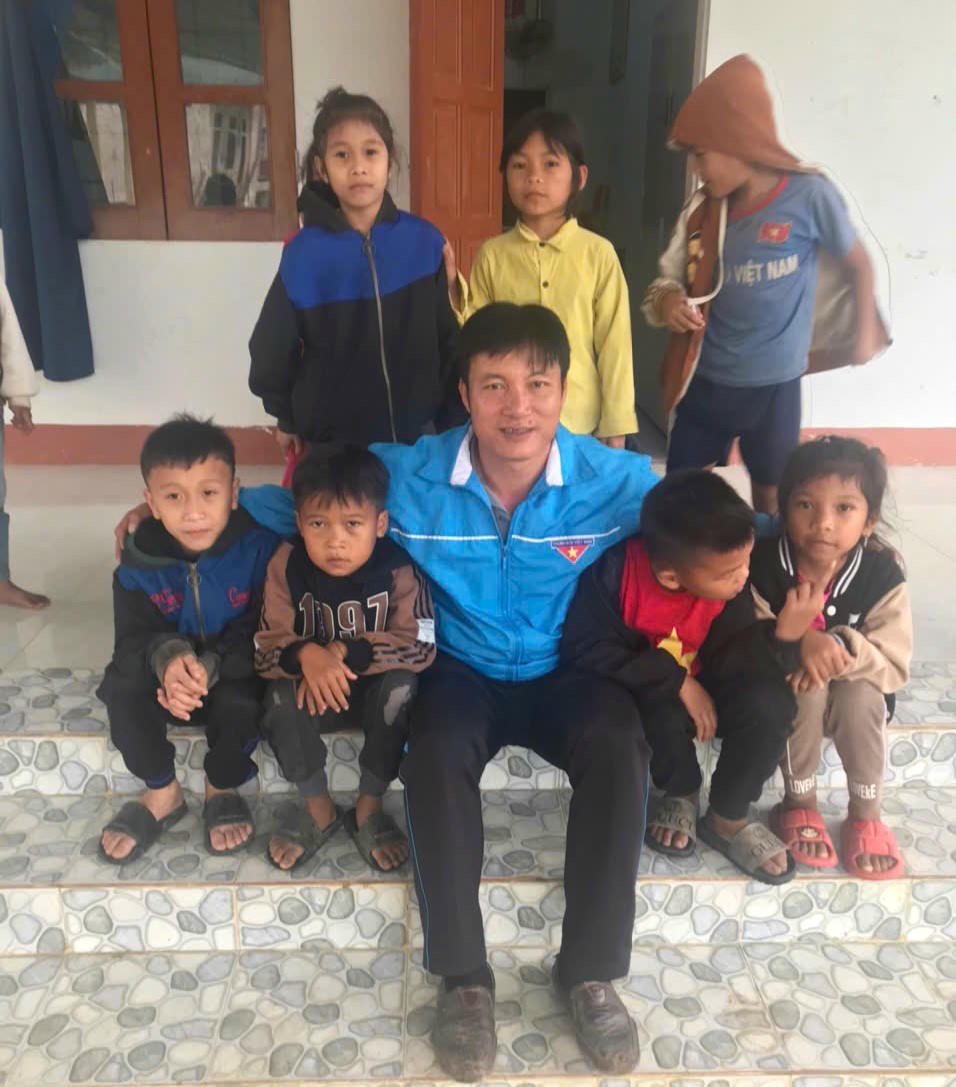
Teacher Hoang Ngoc Lam, who his colleagues jokingly call “the teacher who looks for children” in the highlands, recalls: “In previous years, almost every year the Board of Directors had to send homeroom teachers and me to each village to encourage students to return to class. The period after Tet is the most “sensitive”; students can easily follow their friends from previous classes to the South or to the Northern provinces to work as workers, while others follow their parents to the forest. So the “searching for students” trips, a funny but very real way of calling them, began again.”
Keeping highland students stay with letters
Mr. Lam’s job is not limited to lesson plans and the podium. In ethnic minority areas, homeroom teachers are also… the ones who find students to teach.
The roads to the Chut and Ma Lieng villages are steep in many sections. When it is sunny, it is as hot as fire, and when it is rainy, it is slippery as grease. Sometimes the motorbike cannot go, so the teacher has to leave it at a local’s house and walk. Some days, he travels from early morning until late afternoon to reach the house perched precariously on the mountainside.


"Your child hasn't come to class for the past few days. Please let him come back tomorrow!", a sentence that Mr. Lam has repeated countless times in his 21 years of work.
Some children saw the teacher coming and ran to hide behind the kitchen, some hid behind the buffalo pen, some clung to their mother's shirt and refused to see the teacher. Many parents simply said: "It's fine if he goes to school, or if he doesn't go, just stay home and take care of his younger sibling for us."
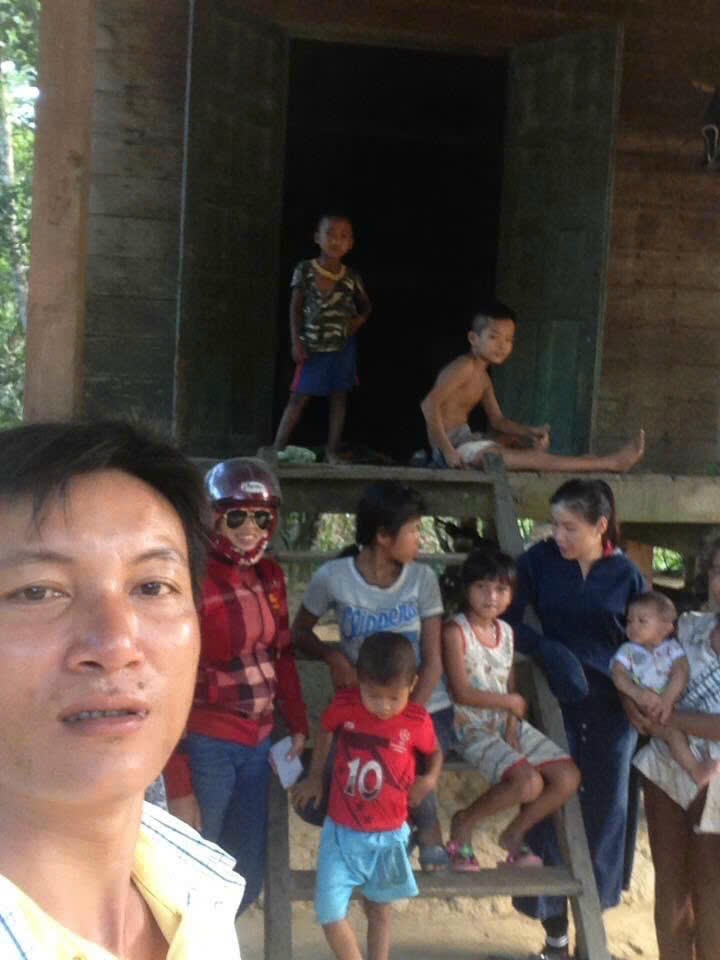
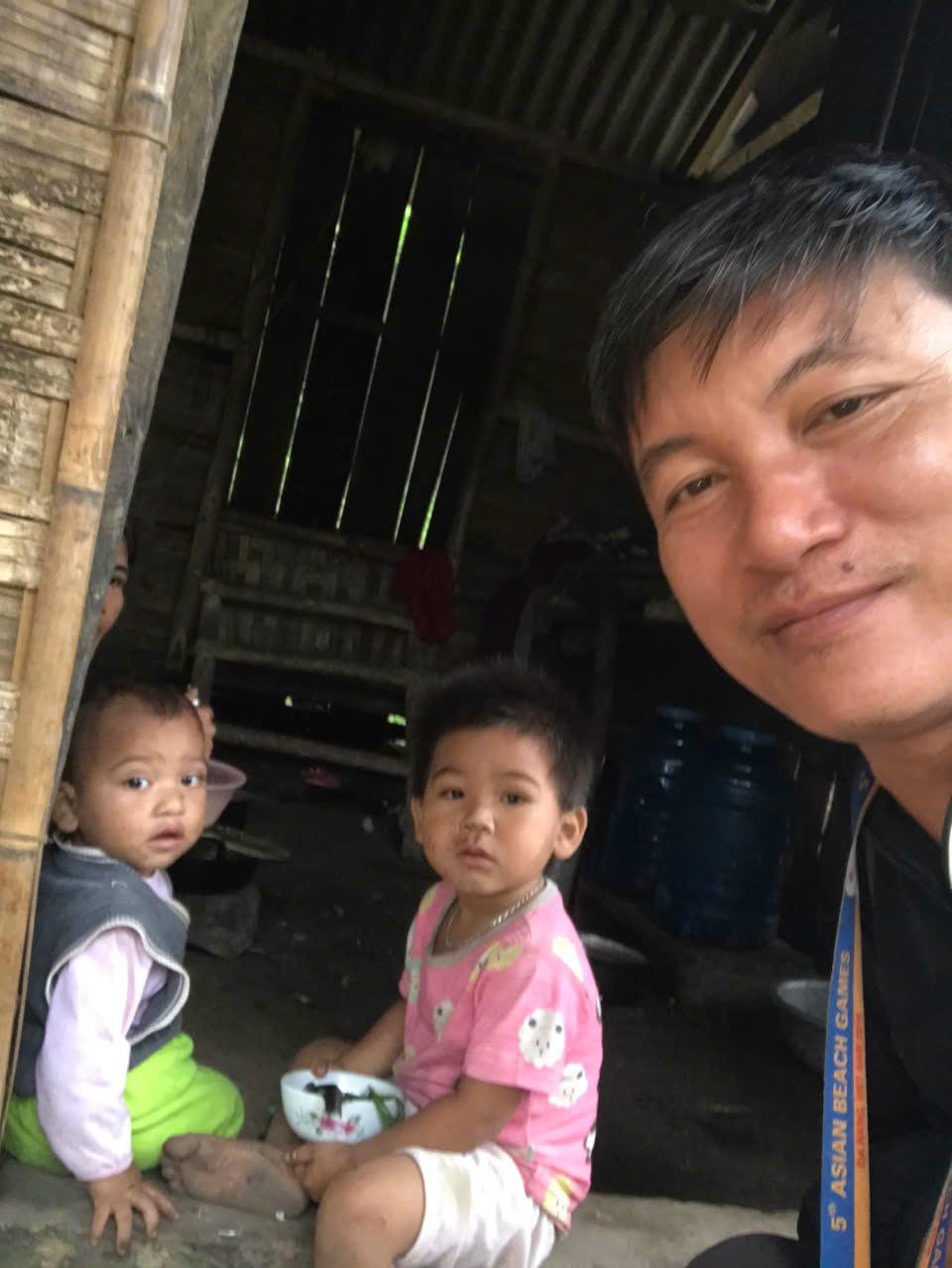
The teacher still persistently advised: "Go to school to avoid hardship in the future, only by knowing how to read and write can you make a living." Many days, after working from morning to evening, eating a bowl of cold rice with sesame salt from the villagers' houses, teacher Lam and the homeroom teacher were able to bring one student back to school.
A trip of thousands of kilometers just to bring a student back to class
Mr. Nguyen Huu Tam, the school's principal, said: If just going within the commune or district is already difficult, then Mr. Lam has to go much further on many trips.
In 2020, 6 students in grades 8 and 9 ran away with their friends to Binh Duong (old) to work as garment workers. Upon hearing the news, the Board of Directors had to ask the local authorities, the Commune Police to coordinate with Mr. Lam to persuade the students to return and complete their studies.
In 2021, after the Tet holiday, two more students followed a friend to Saigon, with an unknown address. The Board of Directors continued to assign Mr. Lam to follow phone numbers, ask workers, motorbike taxi drivers, etc. Finally, he was able to find the students and bring them back.
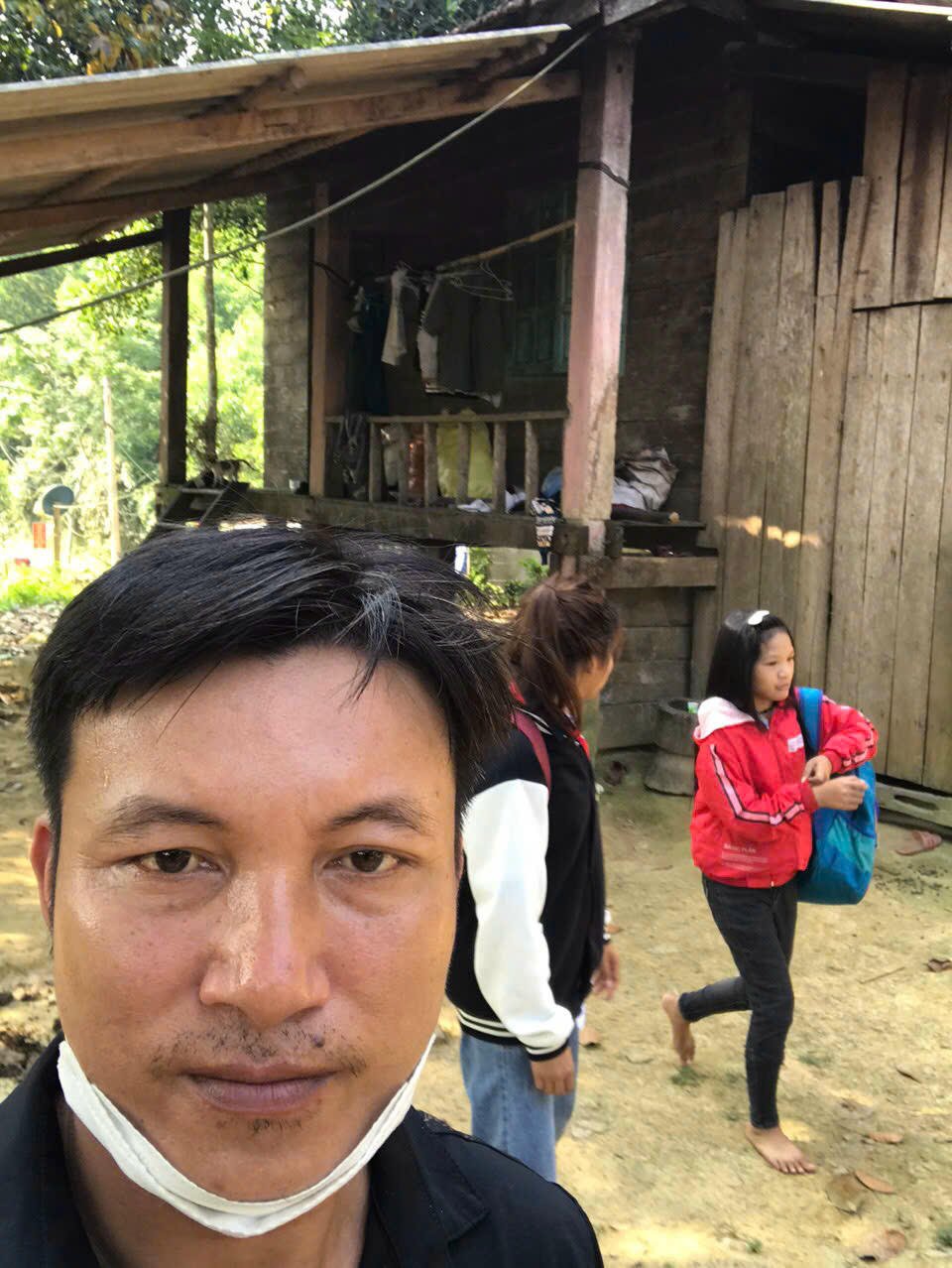

“When I met them, I was both happy and sad. I asked: 'How much money do you make in a day? Do you have a degree?' Hearing that, the children burst into tears,” Mr. Lam recounted.
But the farthest trip was in 2024. That time, the teacher went all the way to Phu Tho (old) to find a 9th grade student who followed a friend to the Cha Lo border and then the friend invited him to work for hire. The family only knew "he went to the North with an acquaintance", the address was unknown.
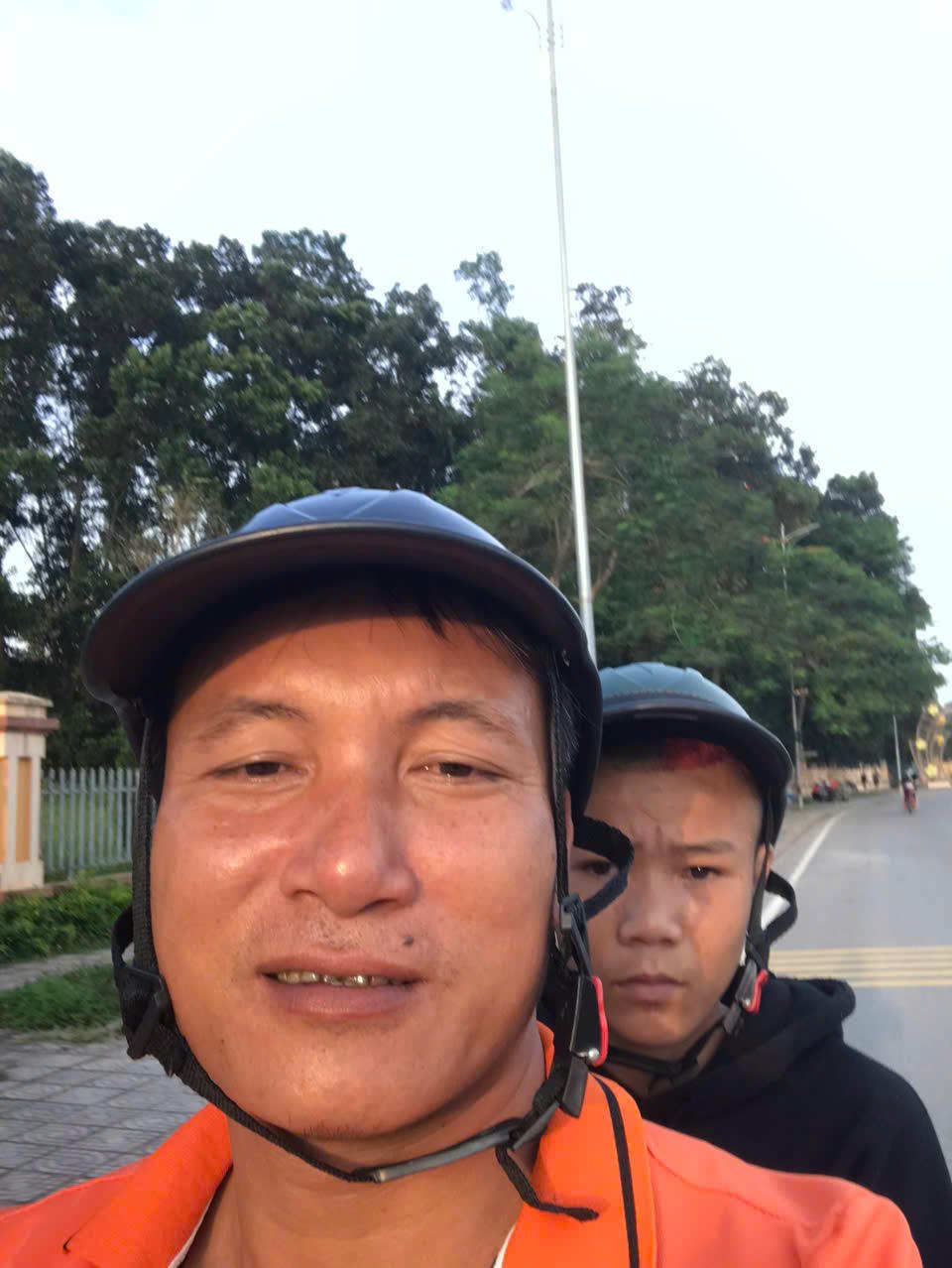

Teacher Lam was again assigned the task of “finding the student to return to class”. He had to travel for three days, change many buses, and ask in every village and hamlet around the Viet Tri Industrial Park. Finally, thanks to a former student, he learned that this student worked at a large factory in the industrial park.
But it was not easy to meet him. The teacher had to “tell” his classmates that someone he knew was waiting at the security gate, and ask them to come out and receive the workwear.
When I appeared at the security gate, the students were quite surprised and asked how the teacher knew I was here. The teacher gently said: “You can walk this far, why can’t you walk 10 kilometers to school?” I just bowed my head and said nothing. And the two of us took the bus together to return to Quang Binh (old) to finish the program.
Those stories, which seem both funny and sad, are something that Mr. Lam and his colleagues have never seen in their lesson plans, but are an indispensable part of the teaching profession in the mountainous areas of Quang Tri province.


Tragicomedy stories on the journey to find students to return to class
Once, when he went to a Ma Lieng family’s house, the teacher had just entered the yard when a pack of dogs rushed out. He had to climb onto the kitchen roof to avoid them. When the homeowner chased the dogs away, the parents laughed and said: “If you love my child, let him go back to school tomorrow.”
Another time, the teacher went to the student’s house all morning but did not see him. When he was about to leave, he heard a noise on the roof. It turned out that the second grader had climbed up to hide. When the teacher called him down, he mumbled: “I’m afraid learning Vietnamese is too difficult…” The teacher patted his shoulder: “If it’s difficult, then we can study together. If we hide, it will be difficult for the rest of our lives.”
What do schools and authorities say?
Mr. Dinh Xuan Thuong, Party Secretary and Chairman of Tuyen Lam Commune People's Committee commented: "People here still face many difficulties, and parents' awareness of education is not uniform. Without the perseverance of teachers, especially Mr. Lam, many children would have dropped out of school very early. He understands each family and each situation, and can convince even the most difficult families."
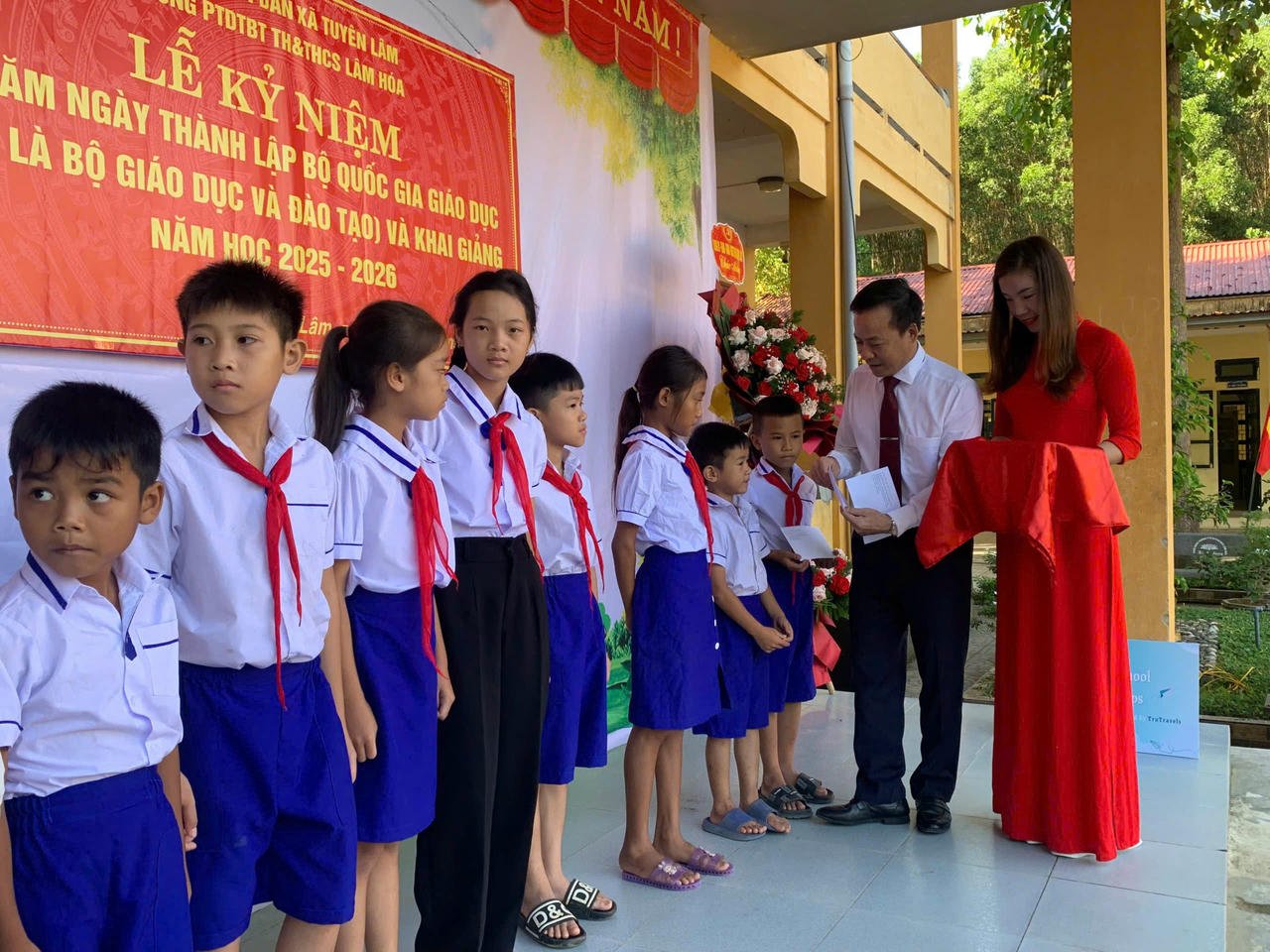
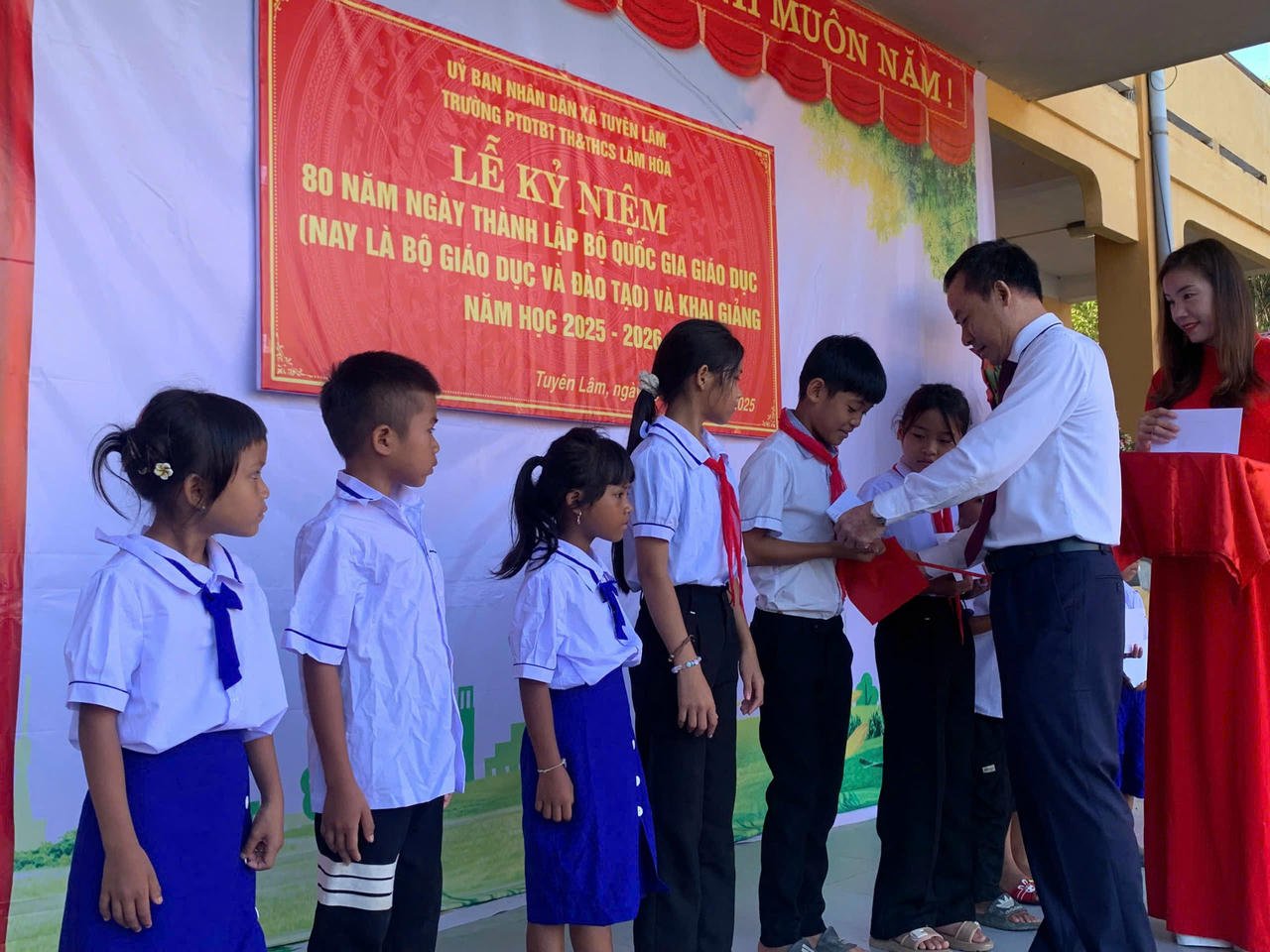
Principal Nguyen Huu Tam added: “The school currently has 4 campuses, including the main campus in the center and 3 satellite campuses in Ban Ke, Ban Cao and Ban Chuoi of Lam Hoa commune (old), with a total of 304 students and 46 staff, teachers, employees and nurses. Because of his understanding of the area, Mr. Lam's role is very important. He speaks the local language well and understands the customs and practices, so people listen and trust him. Thanks to that, over the years the school has maintained a stable student population, significantly reducing the number of students dropping out of school to follow their friends to work as factory workers.”
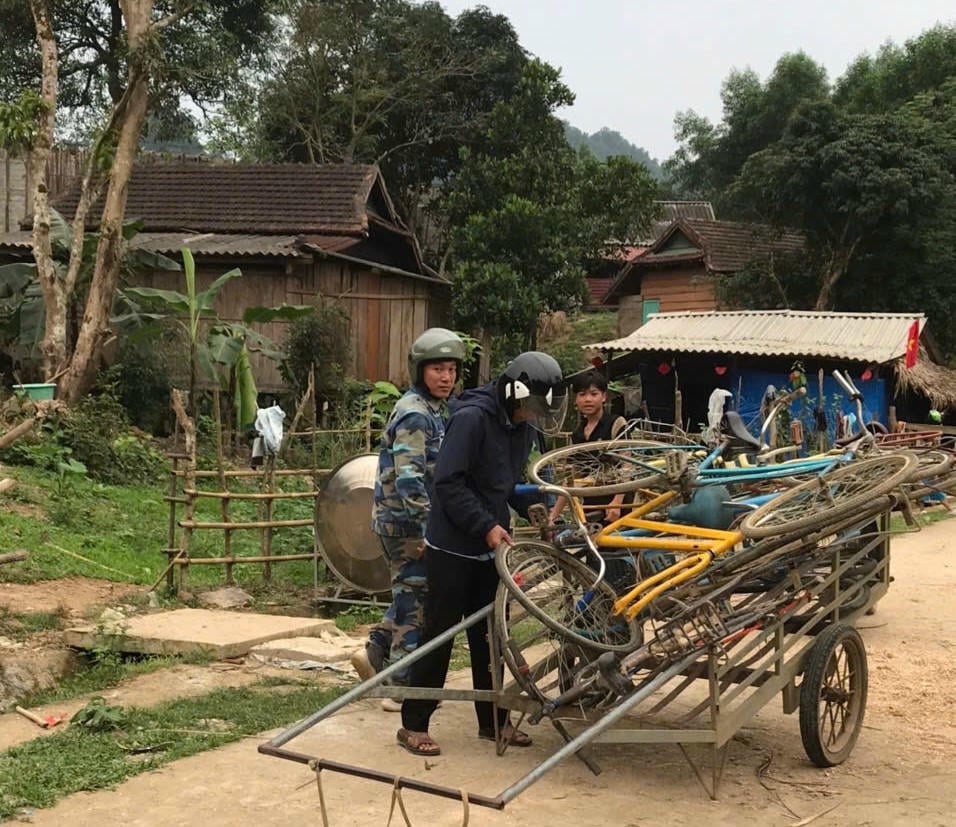

Keep students to pave the way for the future of the village
Thanks to the quiet and persistent steps of Mr. Lam and his colleagues, many generations of Chut and Ma Lieng students have returned to class and continued their studies; many of them are now village and commune officials, some of whom are currently holding the important position of Party cell secretary.
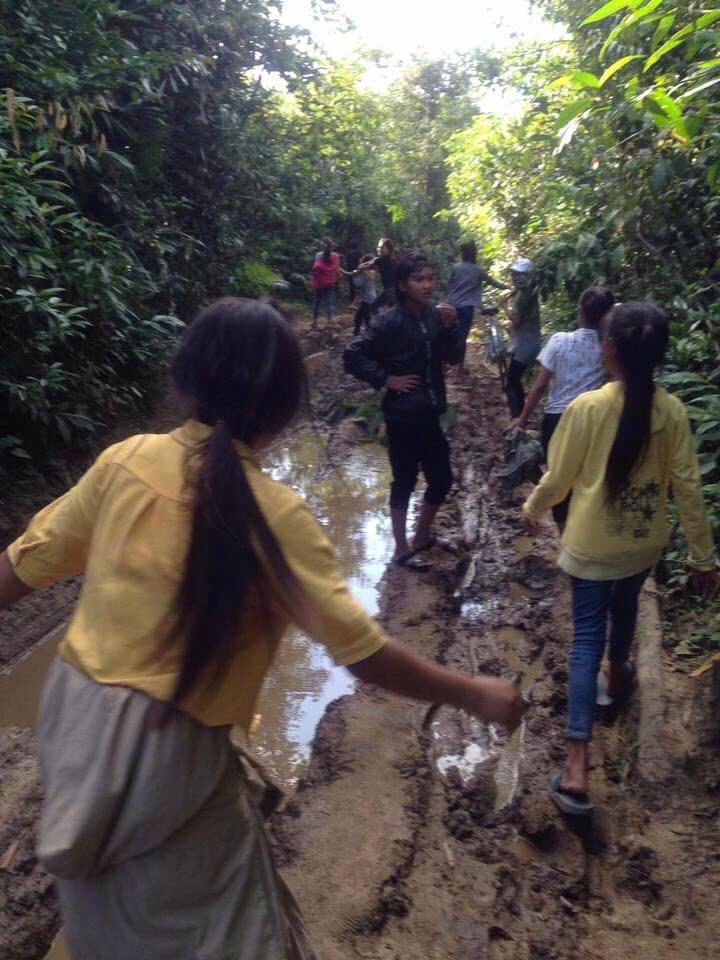
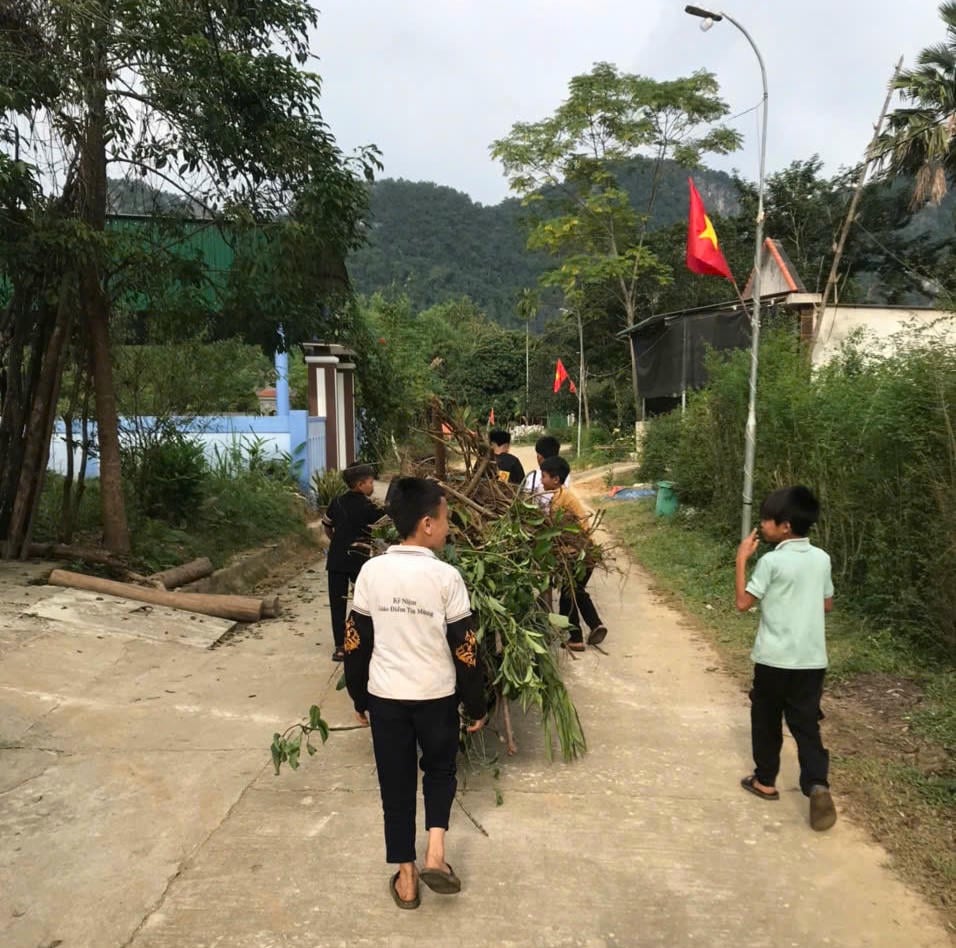
When asked what kept him from being discouraged by such difficult journeys, he just smiled and said with determination: “No matter how far we go, we must go. Bringing students back to class means preserving a future for the village.”
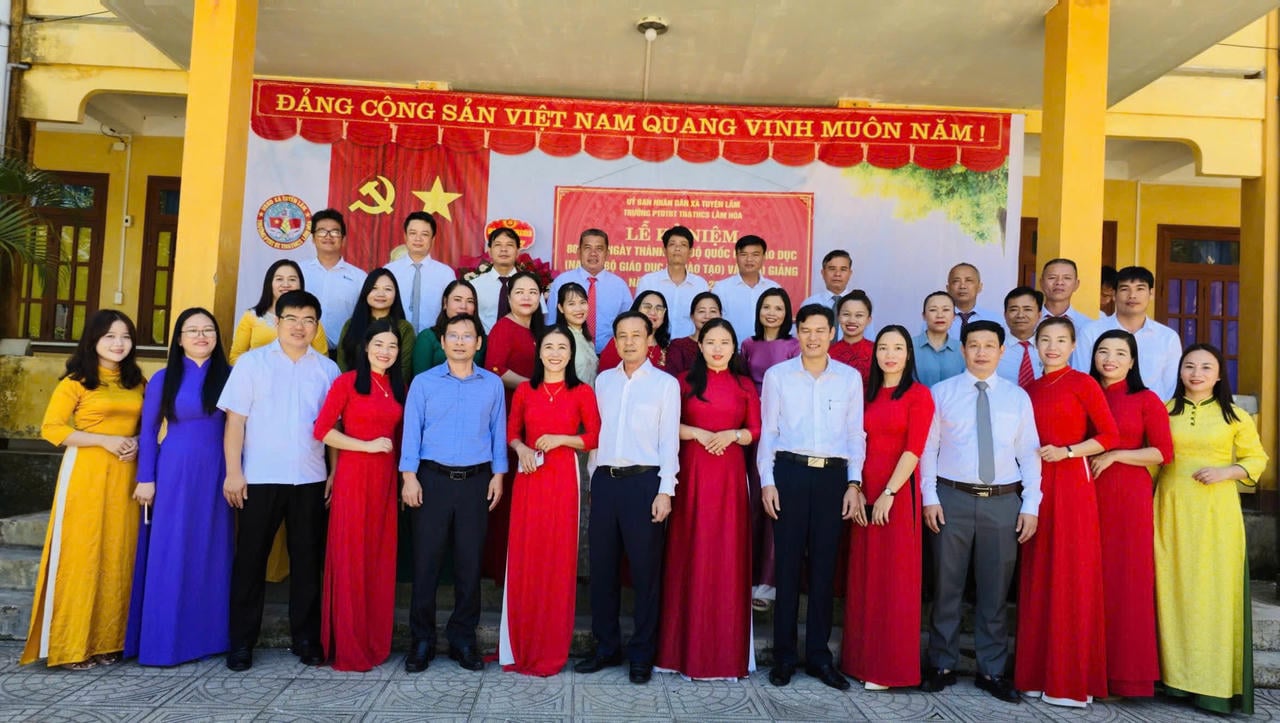


In the mountainous and mountainous areas of Western Quang Tri, where there are still many difficulties, the journey to find students of Mr. Hoang Ngoc Lam is not only a professional responsibility, but also a beautiful story about the perseverance, love and dedication of a teacher in the highlands. And from each silent step on those steep mountain roads, the future of the children and the whole highland village is being "seeded with hope" to change every day.
Source: https://baophapluat.vn/hanh-trinh-khong-co-trong-giao-an-cua-thay-giao-vung-cao-nhung-chuyen-di-goi-tro-ve-lop.html





![[Photo] Prime Minister Pham Minh Chinh meets with representatives of outstanding teachers](https://vphoto.vietnam.vn/thumb/1200x675/vietnam/resource/IMAGE/2025/11/15/1763215934276_dsc-0578-jpg.webp)

![[Photo] General Secretary To Lam receives Vice President of Luxshare-ICT Group (China)](https://vphoto.vietnam.vn/thumb/1200x675/vietnam/resource/IMAGE/2025/11/15/1763211137119_a1-bnd-7809-8939-jpg.webp)






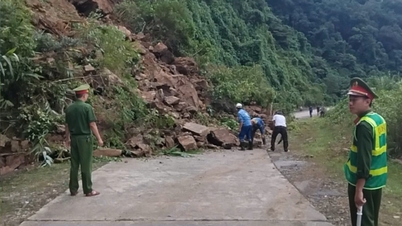

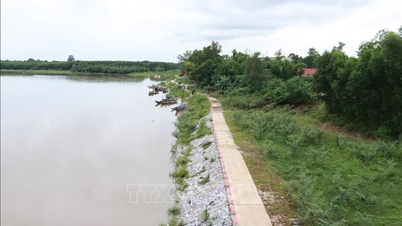
















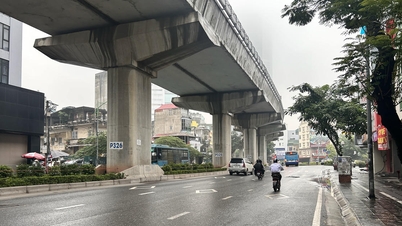

























































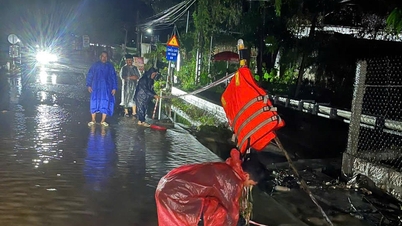















Comment (0)